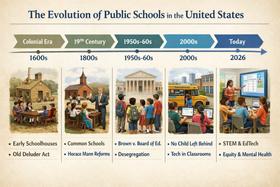Top Rankings
Hopkinton School District ranks among the top 20% of public school district in Massachusetts for:
Category
Attribute
Overall Rank
Highest overall rank (Top 5%)
Math Proficiency
Highest math proficiency (Top 5%)
Reading/Language Arts Proficiency
Highest reading/language arts proficiency (Top 5%)
Science Proficiency
Highest science proficiency (Top 5%)
Community Size
Largest student body (number of students) (Top 1%)
For the 2026 school year, there is 1 public preschool serving 96 students in Hopkinton School District.
Public Preschools in Hopkinton School District have a diversity score of 0.65, which is less than the Massachusetts public preschool average of 0.68.
Minority enrollment is 55% of the student body (majority Asian), which is more than the Massachusetts public preschool average of 53% (majority Hispanic).
Overview
This School District
This State (MA)
# Schools
6 Schools
565 Schools
# Students
4,187 Students
204,952 Students
# Teachers
292 Teachers
17,764 Teachers
Student-Teacher Ratio
14:1
14:1
District Rank
Hopkinton School District, which is ranked within the top 5% of all 393 school districts in Massachusetts (based off of combined math and reading proficiency testing data) for the 2022-2023 school year.
The school district's graduation rate of 98% has decreased from 99% over five school years.
Overall District Rank
#5 out of 395 school districts
(Top 5%)
(Top 5%)
Math Test Scores (% Proficient)
80%
42%
Reading/Language Arts Test Scores (% Proficient)
76%
44%
Science Test Scores (% Proficient)
77%
44%
Graduation Rate
(21-22)98%
90%
Students by Ethnicity:
Diversity Score
0.58
0.68
% American Indian
n/a
n/a
% Asian
30%
6%
% Hispanic
5%
30%
% Black
1%
12%
% White
58%
47%
% Hawaiian
n/a
n/a
% Two or more races
6%
5%
All Ethnic Groups
District Revenue and Spending
The revenue/student of $19,113 in this school district is less than the state median of $23,854. The school district revenue/student has stayed relatively flat over four school years.
The school district's spending/student of $18,559 is less than the state median of $24,611. The school district spending/student has stayed relatively flat over four school years.
Total Revenue
$80 MM
$21,850 MM
Spending
$78 MM
$22,544 MM
Revenue / Student
$19,113
$23,854
Spending / Student
$18,559
$24,611
Best Hopkinton School District Public Preschools (2026)
School
(Math and Reading Proficiency)
(Math and Reading Proficiency)
Location
Quick Facts
Rank: n/an/a
88 Hayden Rowe Street
Hopkinton, MA 01748
(508) 497-9806
Hopkinton, MA 01748
(508) 497-9806
Gr: PK | 96 students Student-teacher ratio: 16:1 Minority enrollment: 55%
Recent Articles

Do We Still Need Libraries in Public Schools in 2026
An updated look at the role of public school libraries in 2026, their impact on literacy, equity, and digital learning, and why they remain essential today.

The History of Public Schools in the United States
Explore the history of public schools in the U.S., from colonial roots to 2026 reforms shaping equity, funding, and classroom innovation.

Special-Program Registration Deadlines Explained
Learn what to know about special-program registration deadlines for magnet, CTE, and dual-enrollment options in public schools.





